What Big Law's Saying About Trump's $300B China Tariffs Plan
Major U.S. law firms, representing business clients, had a lot to say to Robert Lighthizer, the former Skadden, Arps, Slate, Meagher & Flom partner who now serves as the U.S. Trade Representative.
June 18, 2019 at 03:10 PM
5 minute read
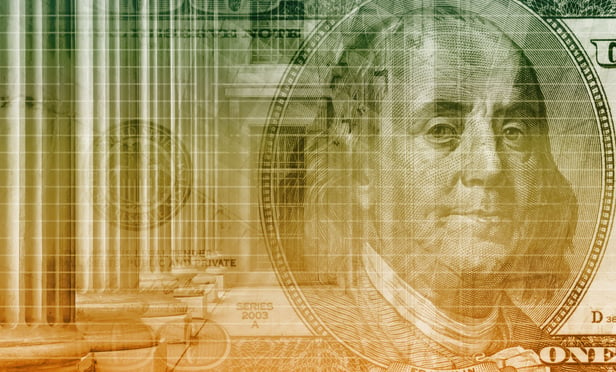
Thousands of comments from businesses small and large flooded the Office of the U.S. Trade Representative in recent weeks as the Trump administration weighs imposing tariffs on nearly $300 billion worth of certain Chinese products.
The U.S. trade office this week began a series of public hearings at which business owners and executives were preparing to testify against, or in support of, the Trump administration's proposed tariffs. The hearings in Washington are set to run through June 25. Read the schedule of witnesses here.
Major U.S. law firms, representing client interests, submitted many of the comments to Robert Lighthizer, the former Skadden, Arps, Slate, Meagher & Flom partner who now serves as the U.S. Trade Representative. Here's a snapshot at some of the Big Law firms said in the letters to Lighthizer (and you can peruse the full docket of comments here):
>> Foley & Lardner, on behalf of Toshiba America Business Solutions Inc. Toshiba opposed tariffs on certain printers, copiers, scanners and fax machines. “Because these multi-function units and parts are frequently used across the U.S. economy, the tariffs represent a broad-based tax on U.S. consumers and businesses,” Gregory Husisian, chair of Foley & Lardner's international trade and national security practice, said in the letter. Associate Jenlain Scott in Washington was also on the submission. “The proposed tariffs would be a tax on numerous small-and-medium-sized businesses, and would do nothing to help any U.S. industry.”
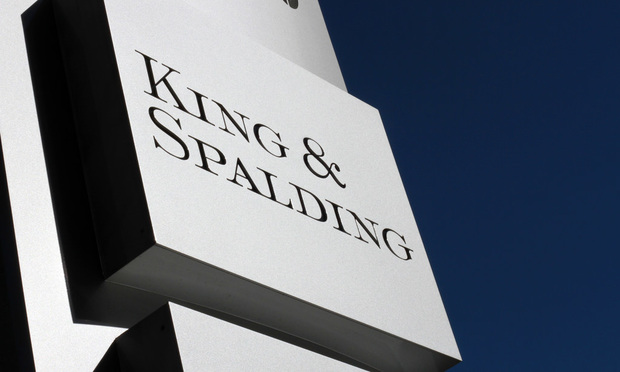 King & Spalding, Atlanta HQ. Photo: John Disney/ALM
King & Spalding, Atlanta HQ. Photo: John Disney/ALM>> King & Spalding, on behalf of Rheem Manufacturing, the heating and cooling company, said it supports retaining tariffs on certain parts related to air conditioners. “There is ample availability of these air conditioner products from domestic and non-Chinese foreign suppliers,” King & Spalding partner J. Michael Taylor and counsel Daniel Schneiderman said in their comment to the U.S. trade office.
>> Drinker Biddle & Reath, on behalf of Best Buy Co. Inc., said it opposed proposed tariffs on products including laptop computers, televisions, gaming consoles and smart watches. “Best Buy intends to provide testimony on the inefficacy of the proposed tariffs in achieving the objectives outlined by the USTR in its Section 301 report and the impact of the proposed tariffs on Best Buy, the industry and U.S. consumers,” Drinker Biddle partners Nathaniel Bolin and Douglas Heffner, both based in Washington, said in their comment.
>> Venable, on behalf of VeriFone Inc., the point-of-sale terminal vendor, said “it is concerned that the proposed tariff increases will severely impact U.S. merchants, especially those that are small, medium and local.” The comment, filed by Venable partner Alexander Koff, added: “Verifone's position is that imposing the proposed duties … would not be practicable or effective to curb or eliminate the acts, policies, and practices of China” that the U.S. trade office identified as problematic.
>> Alston & Bird, on behalf of Balsam Brands Inc., the artificial Christmas tree retailer: “Balsam Hill urges the USTR to exclude pre-lit artificial Christmas trees from the final list of Chinese goods for imposition of Section 301 tariffs. Balsam Hill's artificial Christmas trees are constructed primarily of plastics, and most come decorated with lights and are known as pre-lit artificial Christmas trees,” Jason Waite, international trade partner in Washington, wrote in the letter to the trade office. Waite noted that nearly all “artificial Christmas trees sold in the United States are manufactured in China and no viable alternative sources of supplies are available for American consumers.”
>> Hogan Lovells, on behalf of Spectrum Brands Holdings, maker of many household, home and garden and pet care items, said proposed tariffs on various electric appliances “are inappropriate and would cause disproportionate economic harm to U.S. manufacturing, jobs and consumers. These tariffs would harm multiple American brands and potentially lead to a loss of market share to foreign competitors,” Hogan Lovells counsel Jared Wessel in Washington wrote.
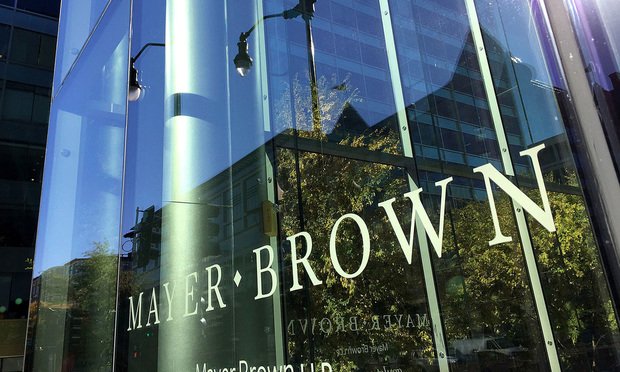 Mayer Brown offices in Washington, DC. Photo: Diego M. Radzinschi/NLJ
Mayer Brown offices in Washington, DC. Photo: Diego M. Radzinschi/NLJ>> Mayer Brown, on behalf of Evenflo Co. Inc., maker of car seats, strollers and other children's products: “[I]imposing a 25 percent additional duty on products that are essential to the health and safety of infants and children (and in some cases, are required by law) would not be practicable or effective to obtain the elimination of China's relevant unfair acts, policies and practices, and would cause disproportionate economic harm to U.S. interests,” Mayer Brown trade partner Sydney Mintzer wrote.
>> Arent Fox, on behalf of Christie Digital Systems USA Inc., maker of certain visual and audio products that the cinema and entertainment industries use: “The proposed tariffs on the subject products imported by Christie will not further the administration's goal of eliminating China's acts, policies and practices, and will cause disproportionate harm to Christie, its employees and its customers,” Arent Fox trade partner Teresa Polino wrote. Associate Elyssa Kutner was also on the letter.
Read more:
Fight Over Trump's Trade Tariffs Lands at the U.S. Supreme Court
Mayer Brown's New DC Leader Sees More Growth Ahead
John Dowd, Former Trump Lawyer, Registers as Federal Lobbyist
This content has been archived. It is available through our partners, LexisNexis® and Bloomberg Law.
To view this content, please continue to their sites.
Not a Lexis Subscriber?
Subscribe Now
Not a Bloomberg Law Subscriber?
Subscribe Now
NOT FOR REPRINT
© 2025 ALM Global, LLC, All Rights Reserved. Request academic re-use from www.copyright.com. All other uses, submit a request to [email protected]. For more information visit Asset & Logo Licensing.
You Might Like
View All
FTC Chair Lina Khan Sues John Deere Over 'Right to Repair,' Infuriates Successor
6 minute read
$10M John Deere Bribery Settlement Underscores Risks of Not Integrating Acquisitions
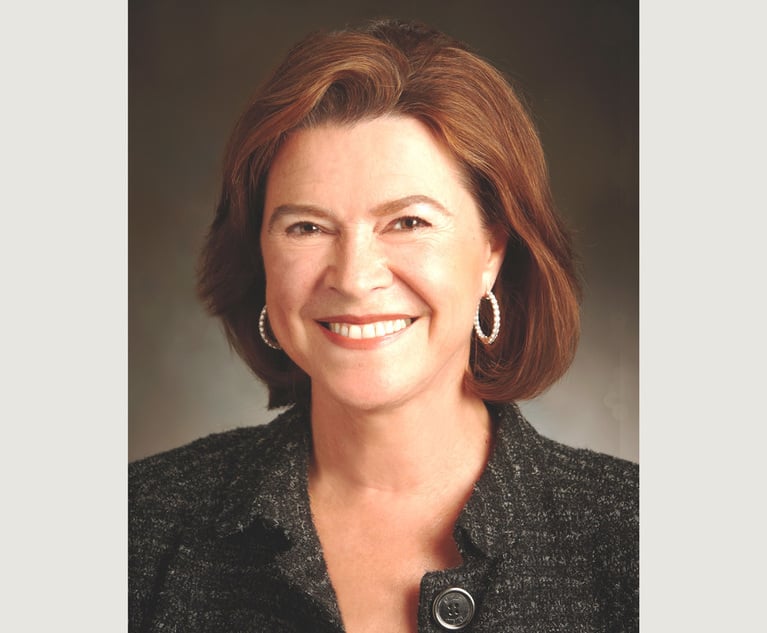
Natalie Black Kohler, Legal Chief of Bath-Fixture Giant for 26 Years, Dies at 74
3 minute read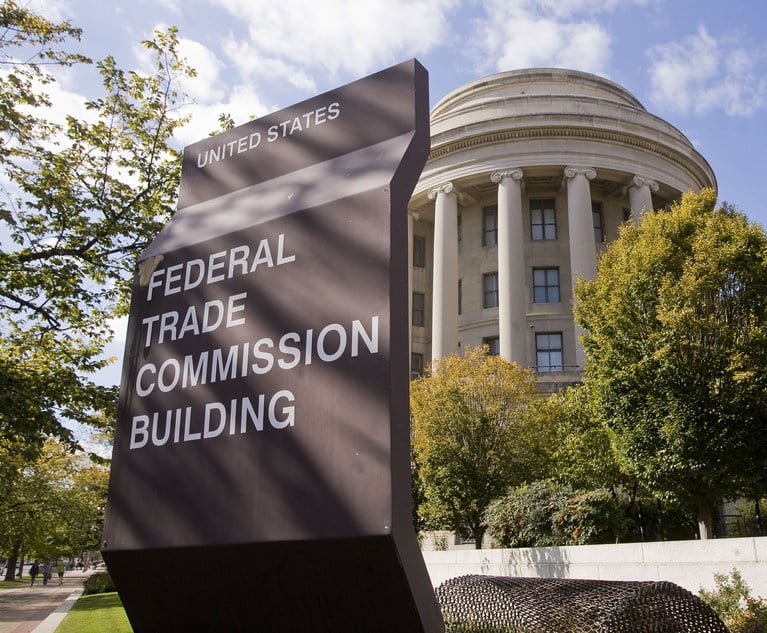
'Strong' Legal Theory or 'Oxymoron'? Experts Eye FTC Antitrust Suit Against Mattress Merger
5 minute readTrending Stories
Who Got The Work
J. Brugh Lower of Gibbons has entered an appearance for industrial equipment supplier Devco Corporation in a pending trademark infringement lawsuit. The suit, accusing the defendant of selling knock-off Graco products, was filed Dec. 18 in New Jersey District Court by Rivkin Radler on behalf of Graco Inc. and Graco Minnesota. The case, assigned to U.S. District Judge Zahid N. Quraishi, is 3:24-cv-11294, Graco Inc. et al v. Devco Corporation.
Who Got The Work
Rebecca Maller-Stein and Kent A. Yalowitz of Arnold & Porter Kaye Scholer have entered their appearances for Hanaco Venture Capital and its executives, Lior Prosor and David Frankel, in a pending securities lawsuit. The action, filed on Dec. 24 in New York Southern District Court by Zell, Aron & Co. on behalf of Goldeneye Advisors, accuses the defendants of negligently and fraudulently managing the plaintiff's $1 million investment. The case, assigned to U.S. District Judge Vernon S. Broderick, is 1:24-cv-09918, Goldeneye Advisors, LLC v. Hanaco Venture Capital, Ltd. et al.
Who Got The Work
Attorneys from A&O Shearman has stepped in as defense counsel for Toronto-Dominion Bank and other defendants in a pending securities class action. The suit, filed Dec. 11 in New York Southern District Court by Bleichmar Fonti & Auld, accuses the defendants of concealing the bank's 'pervasive' deficiencies in regards to its compliance with the Bank Secrecy Act and the quality of its anti-money laundering controls. The case, assigned to U.S. District Judge Arun Subramanian, is 1:24-cv-09445, Gonzalez v. The Toronto-Dominion Bank et al.
Who Got The Work
Crown Castle International, a Pennsylvania company providing shared communications infrastructure, has turned to Luke D. Wolf of Gordon Rees Scully Mansukhani to fend off a pending breach-of-contract lawsuit. The court action, filed Nov. 25 in Michigan Eastern District Court by Hooper Hathaway PC on behalf of The Town Residences LLC, accuses Crown Castle of failing to transfer approximately $30,000 in utility payments from T-Mobile in breach of a roof-top lease and assignment agreement. The case, assigned to U.S. District Judge Susan K. Declercq, is 2:24-cv-13131, The Town Residences LLC v. T-Mobile US, Inc. et al.
Who Got The Work
Wilfred P. Coronato and Daniel M. Schwartz of McCarter & English have stepped in as defense counsel to Electrolux Home Products Inc. in a pending product liability lawsuit. The court action, filed Nov. 26 in New York Eastern District Court by Poulos Lopiccolo PC and Nagel Rice LLP on behalf of David Stern, alleges that the defendant's refrigerators’ drawers and shelving repeatedly break and fall apart within months after purchase. The case, assigned to U.S. District Judge Joan M. Azrack, is 2:24-cv-08204, Stern v. Electrolux Home Products, Inc.
Featured Firms
Law Offices of Gary Martin Hays & Associates, P.C.
(470) 294-1674
Law Offices of Mark E. Salomone
(857) 444-6468
Smith & Hassler
(713) 739-1250










